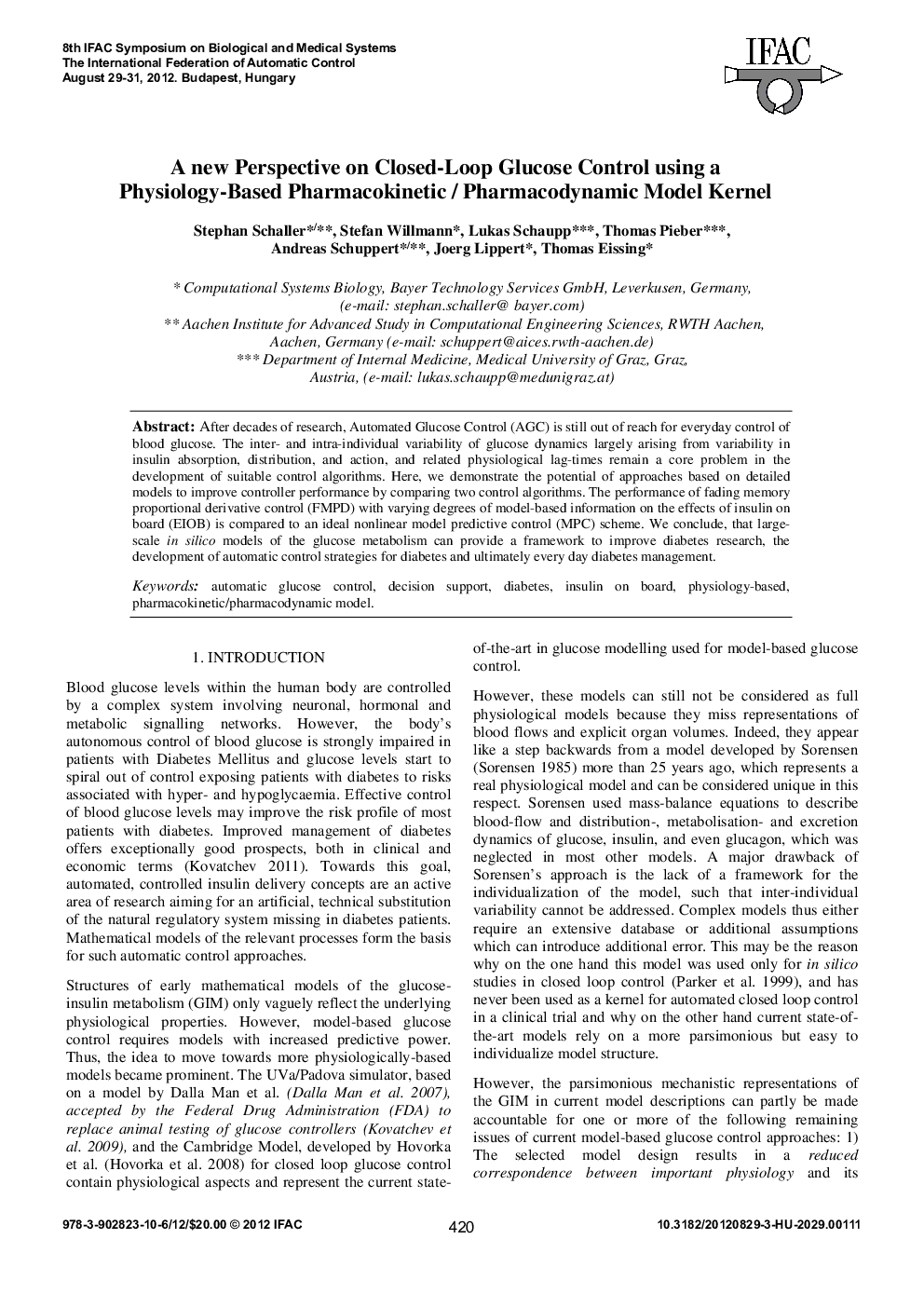| Article ID | Journal | Published Year | Pages | File Type |
|---|---|---|---|---|
| 718307 | IFAC Proceedings Volumes | 2012 | 6 Pages |
After decades of research, Automated Glucose Control (AGC) is still out of reach for everyday control of blood glucose. The inter- and intra-individual variability of glucose dynamics largely arising from variability in insulin absorption, distribution, and action, and related physiological lag-times remain a core problem in the development of suitable control algorithms. Here, we demonstrate the potential of approaches based on detailed models to improve controller performance by comparing two control algorithms. The performance of fading memory proportional derivative control (FMPD) with varying degrees of model-based information on the effects of insulin on board (EIOB) is compared to an ideal nonlinear model predictive control (MPC) scheme. We conclude, that large-scale in silico models of the glucose metabolism can provide a framework to improve diabetes research, the development of automatic control strategies for diabetes and ultimately every day diabetes management.
